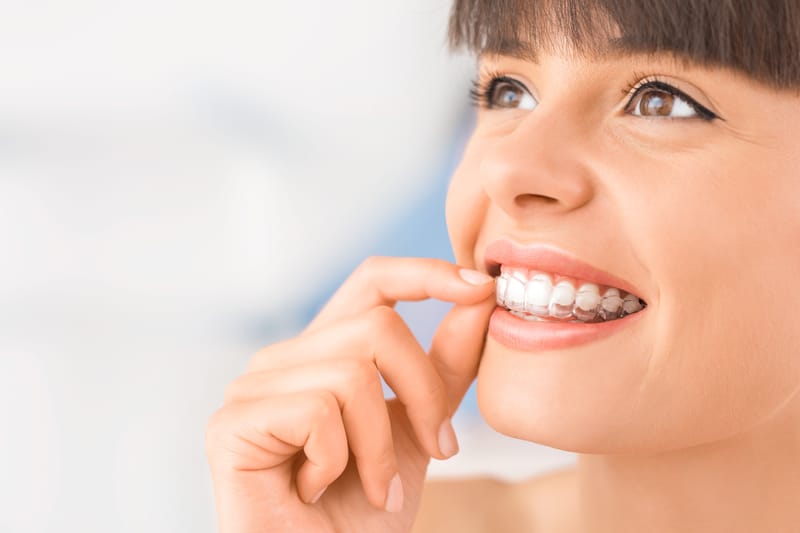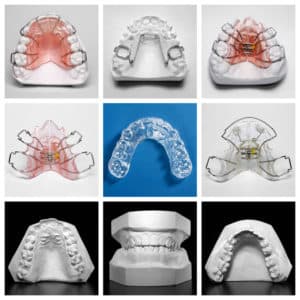Orthodontics Can Benefit Your Oral Health


Many people will never need an orthodontist. However, orthodontic treatment can significantly help reduce problems with tooth decay and gum disease. That’s because crooked teeth are teeth that are harder to clean (leading to oral health diseases) and ones that can break, chip, crack and become injured easily. Find out how cosmetic dentistry options such as orthodontic treatment can completely change a smile!
Do You Need Orthodontic Treatment?
The American Dental Association recommends that all people visit a dentist at least twice a year for comprehensive exams and dental cleanings. Are you keeping up on that recommendation? Studies show that only about 65% of people in the U.S. are visiting the dentist each year, and not everyone is going twice like they should. This may be one reason why tooth decay (known as “cavities”) is such a chronic problem in the U.S. Gum disease is also at an all-time high, affecting more than 64.7 million adults. Recommendations for visiting the dentist are there for people so that they can keep their oral health in check. What about visiting an orthodontist? Do you need one?
Tons of people will never need orthodontic treatment, but millions will. In fact, there are at least 4 million people every single year that have some type of braces on their teeth. You can know if you need to be one of those 4 million by having an orthodontic exam or by speaking to your dentist. The American Association of Orthodontists recommends that every person see an orthodontist for an evaluation around age 7 or 8. This is a time when bite and alignment issues with the teeth and jaws can be found. When we do find patients with misaligned jaws and bites, or crooked teeth, we can work with them to set up an orthodontic treatment plan.
If you have frequent cavities or issues with gingivitis—or the first stage of gum disease—you may need orthodontics. If you notice that you or your child’s teeth are crooked, orthodontics can help. When children start to show signs of speech impediments or problems with biting, chewing or eating, orthodontic treatment can help correct the issues.

Major Oral Health Issues
We mentioned tooth decay and gum disease. Why are they such a problem? Both are diseases that can happen in your mouth and ones that can significantly hinder your quality of life. Tooth decay happens without you even realizing it. Have you ever been to the dentist and you have cavities even though you never noticed anything wrong with your teeth? Many have had this happen. Cavities aren’t always something you can see. When you eat, sugars in your foods and drinks mix with mouth bacteria to create a clear film that is called plaque. Instead of leaving your mouth, it sticks to your teeth, especially along the gum line.
Plaque is acidic and because it’s touching your tooth surface, the acids will try to weaken and break up your tooth minerals. If you don’t brush and floss your teeth enough, it can break apart those minerals on a microscopic level. It can also create small holes and openings in your teeth, which is how you can get decay inside your tooth. Once decay has started, it starts to spread and you can lose large parts of your teeth or your entire tooth if a cavity grows large enough. Your teeth (adult teeth) are meant to be permanent, so it’s a major issue if you let decay grow.
Gum disease happens due to plaque as well. When that acidic plaque sits along the gum line, the acids irritate the gums. This causes them to be red, swollen and inflamed. When brushing and flossing doesn’t happen enough, the gums will take their own measures to get away from plaque. They will start to pull away with gum recession and it can become so severe that the teeth begin to fall out.

How Can Orthodontics Benefit Your Oral Health?
What do these major oral health issues have to do with orthodontics? Orthodontics can significantly reduce your risk for tooth decay and gum disease. This is because straightening the teeth can make them much easier to clean. With crooked teeth, there may be large areas where toothbrush bristles can’t reach, even though food and plaque is caking in those areas. Often, there are issues passing floss through the teeth. This leaves all the spaces between open to decay, and around the gum line.
Crooked teeth are also susceptible to breaking much easier than straight teeth. This is because the actions of biting and chewing place pressure on the teeth. When teeth are crooked, pressure gets placed unevenly on those crooked teeth, ultimately resulting in cracks, chips, fractures and broken teeth. Studies show that orthodontics helps to reduce most oral health issues and speech problems due to crooked teeth. They also show that having your teeth straightened can make you significantly more confident. Those with straighter teeth can benefit from better oral health, a better smile and teeth that they want to show off more often.
Better Your Oral Health Today
If you want to have fewer oral health issues, ask us about how orthodontics can benefit you specifically. If you already have straight teeth but want a more beautiful smile, we can help you with affordable cosmetic dental services such as teeth whitening. For your biannual exams and dental cleanings to see how your oral health is doing, you can call Dr. Ania’s office at 303-443-0998!


